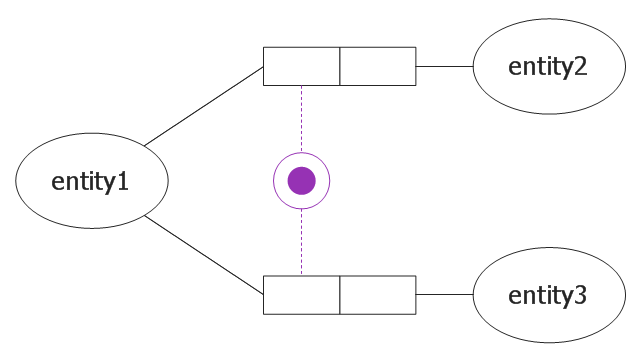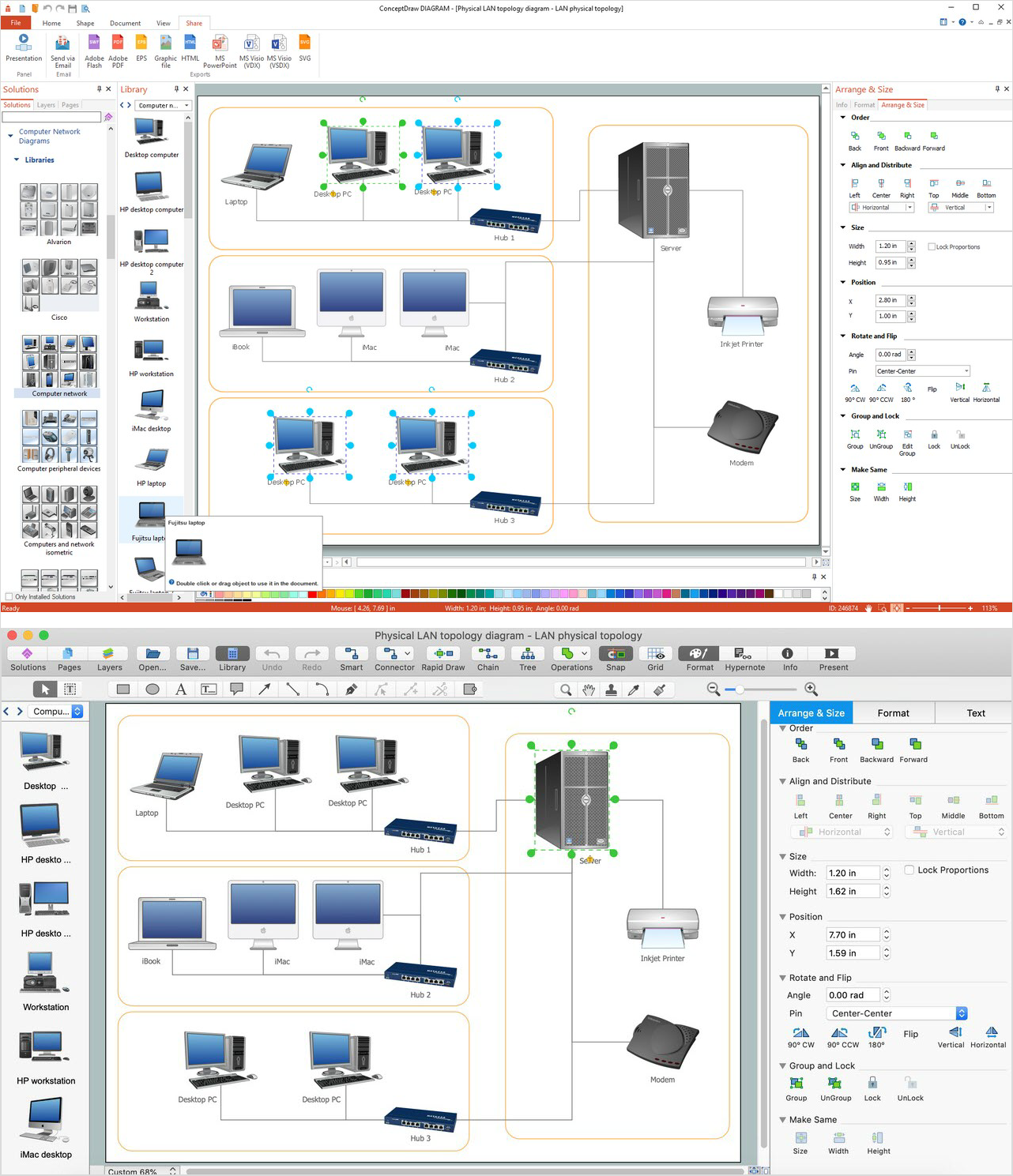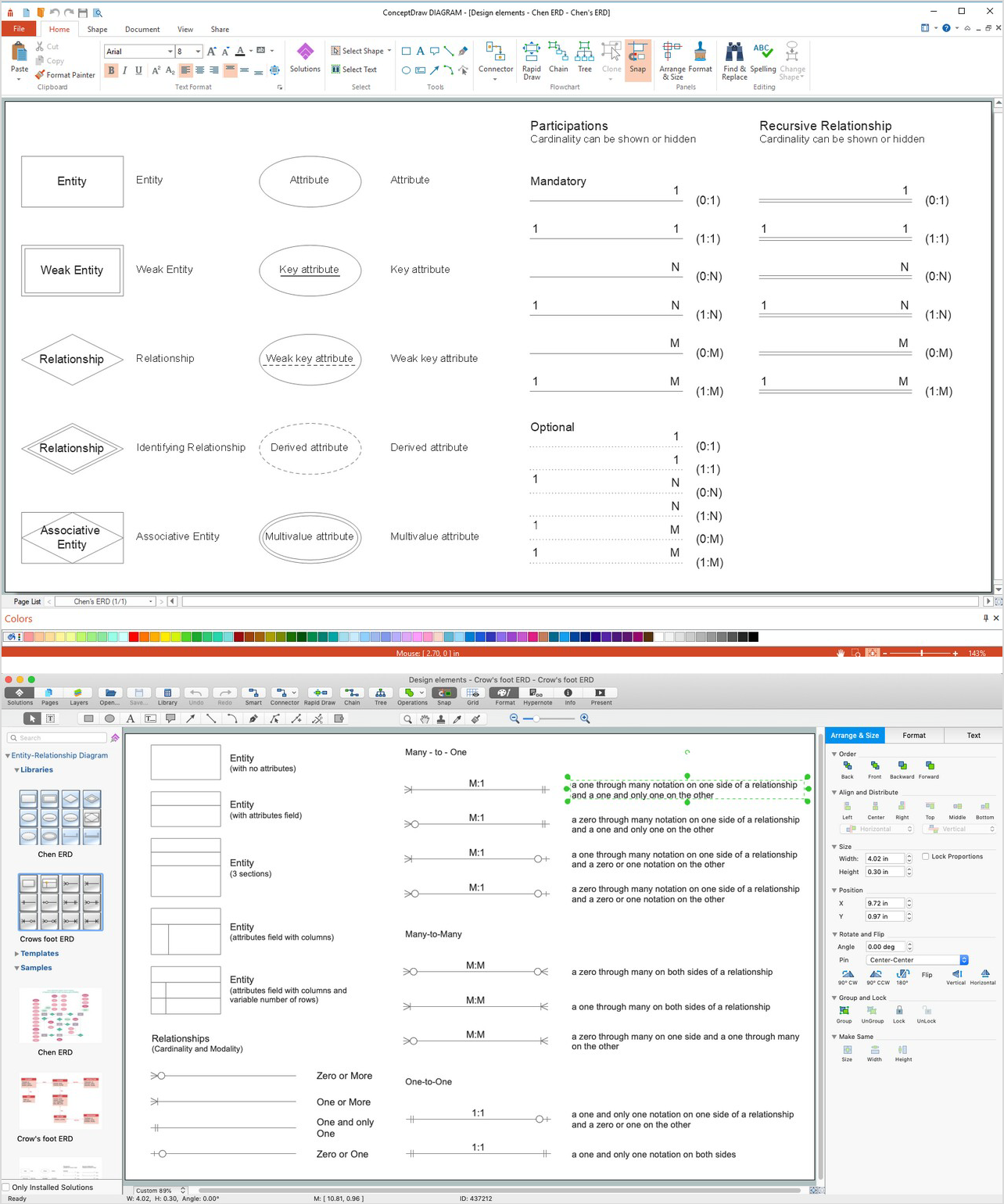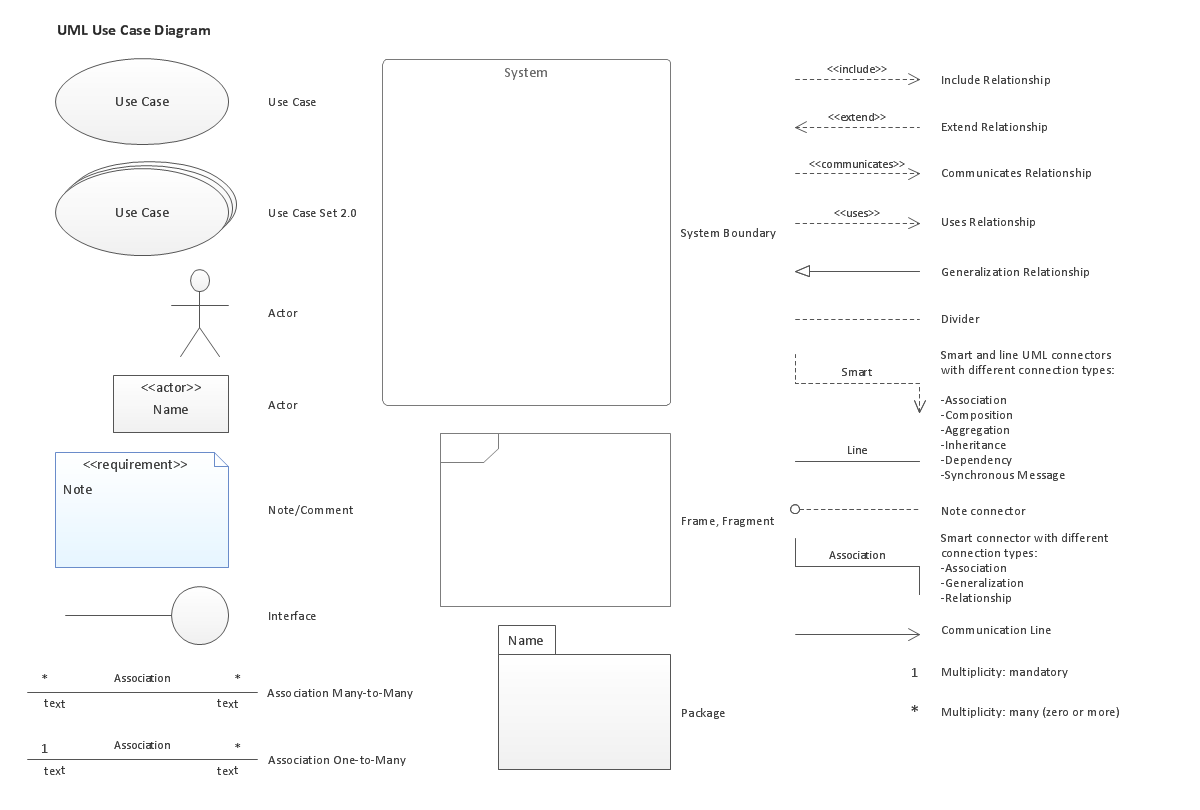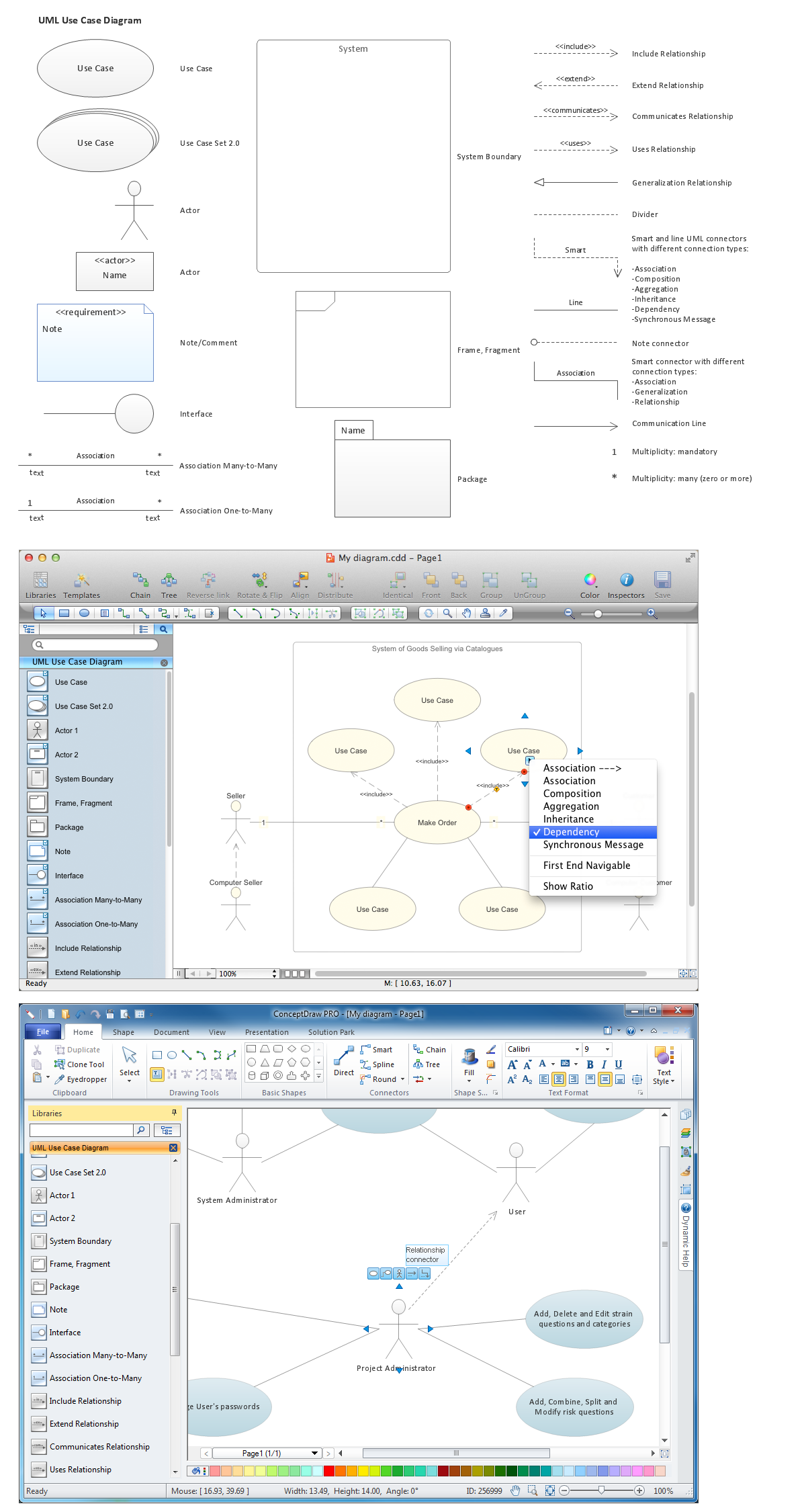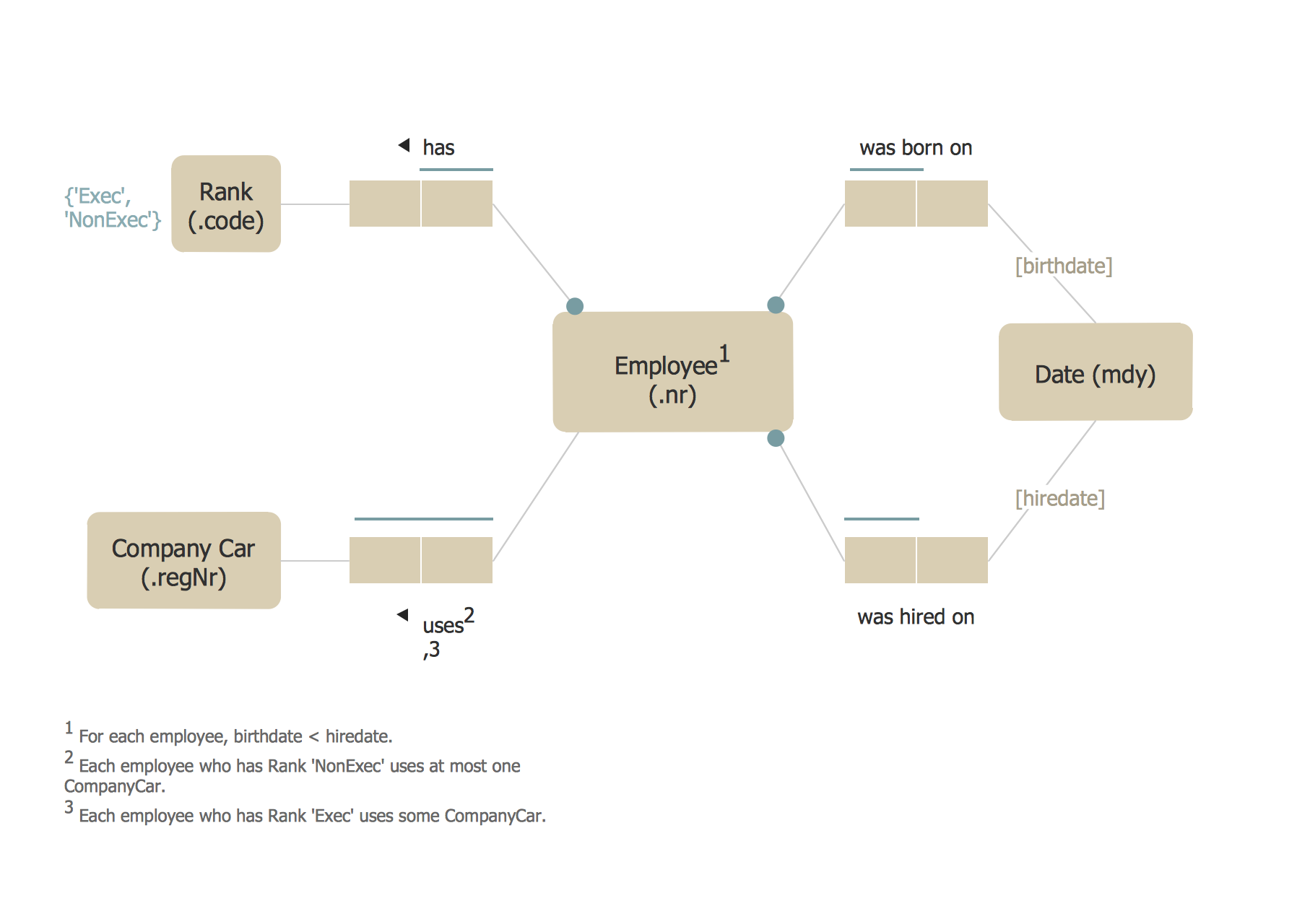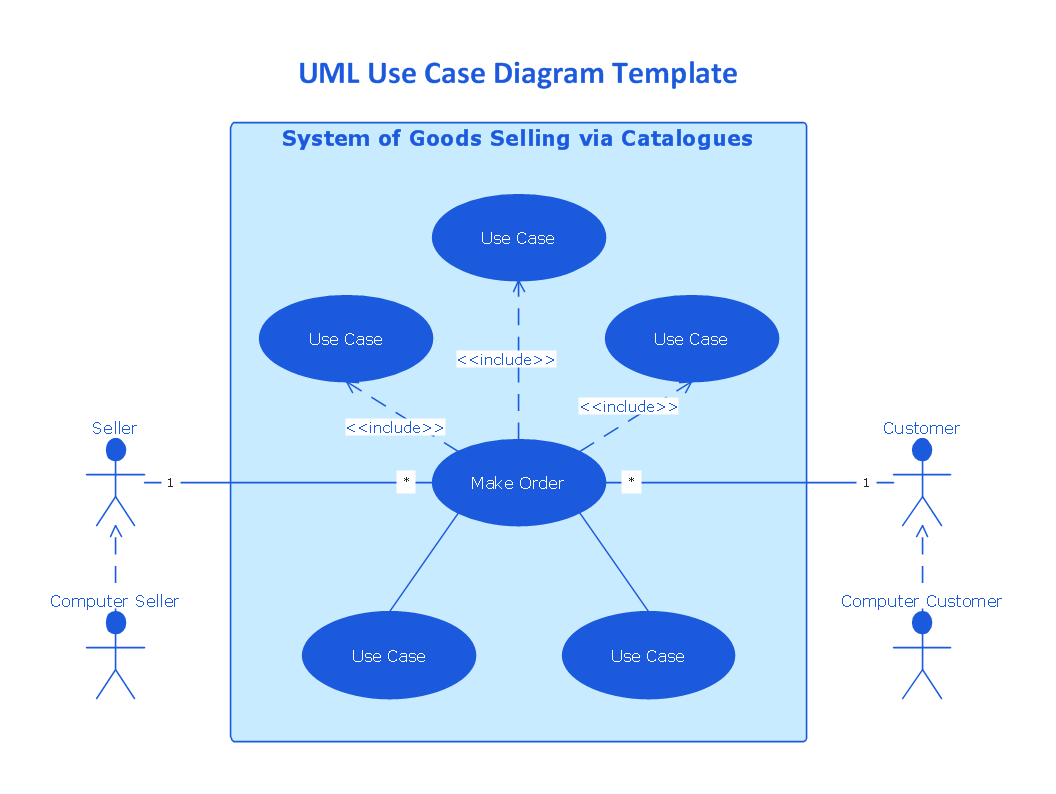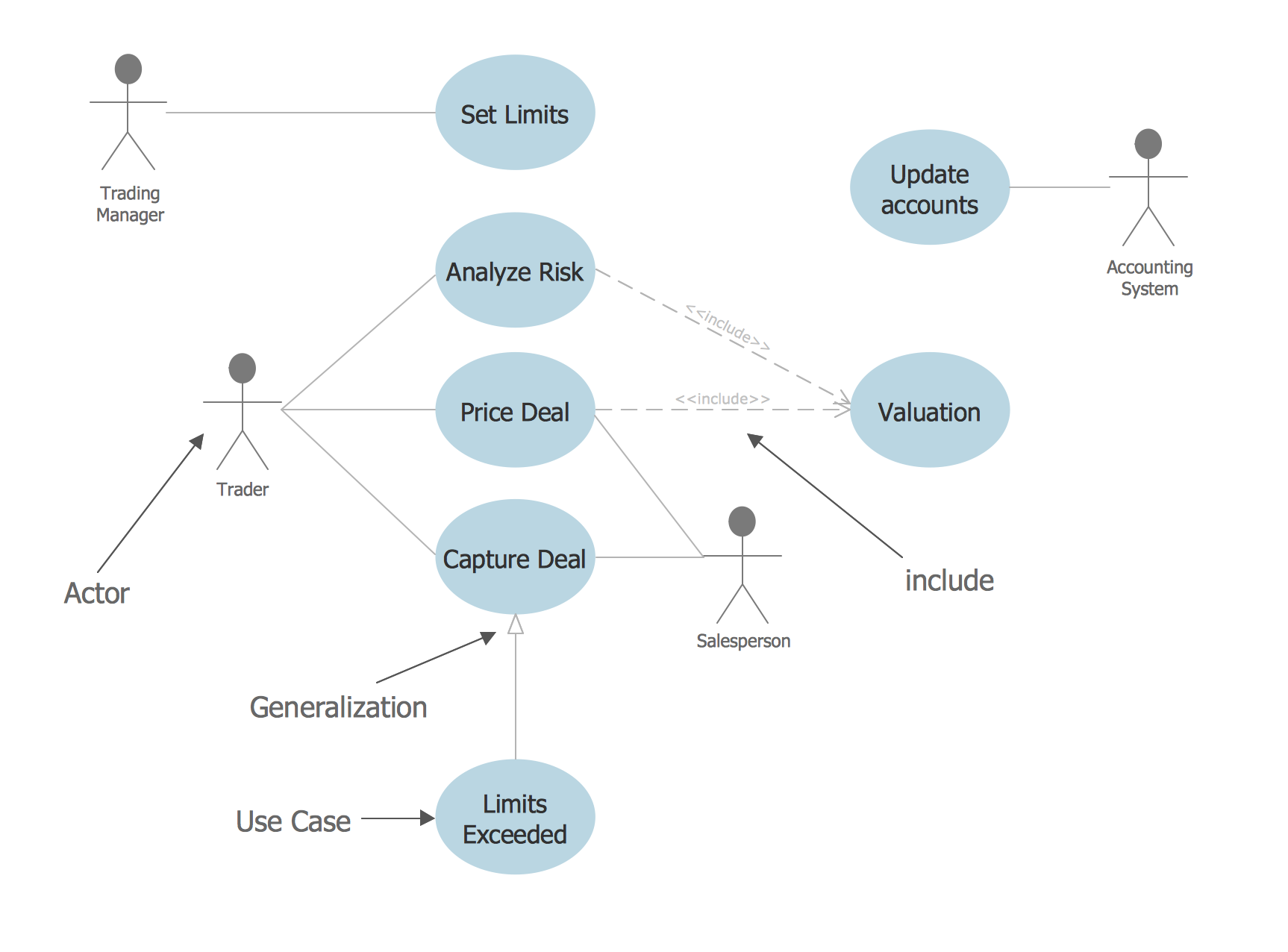Entity Relationship Diagram Symbols
The semantic modeling method nowadays is successfully applied in database structure design. It is effective method of modeling the data structures, which is based on the meaning of these data. As a tool of semantic modeling, there are used different types of Entity-Relationship Diagrams. Entity Relationship Diagram (ERD) is applied to visually and clearly represent a structure of a business database. The main components of ERDs are: entity, relation and attributes. An entity is a class of similar objects in the model, each entity is depicted in the form of rectangle and has the name expressed by a noun. Relation is shown in the form of non-directional line that connects two entities. There are several notation styles used for ERDs: information engineering style, Chen style, Bachman style, Martin Style. The Entity Relationship Diagram symbols used for professional ERD drawing are predesigned by professionals and collected in the libraries of the Entity-Relationship Diagram (ERD) solution for ConceptDraw DIAGRAM software.This object-role modeling (ORM) diagram sample shows disjunctive mandatory role constraint.
It was designed on the base of the Wikimedia Commons file: 9 DisjunktyvusPrivalomumoRibojimas.jpg. [commons.wikimedia.org/ wiki/ File:9_ DisjunktyvusPrivalomumoRibojimas.jpg]
"2.7. Mandatory Role Constraints.
The ORM 1 tool indicates simple mandatory constraints by a solid dot either (a) at the intersection of an entity type shape and the line connecting it to a role, or (b) at the role end. Option (b) is needed to avoid ambiguity when an object type plays many mandatory roles whose connections to the object type are too close to distinguish which role the dot applies to. Currently, disjunctive mandatory (inclusive-or) constraints are depicted by placing the solid dot in a circle connected by dotted lines to the roles it applies to. ORM 2 retains this notation, except that the solid dot is consistently colored violet and a global configuration option determines the default placement of simple mandatory dots at the role or object type end. Users may override this global setting on an individual role basis." [www.orm.net/ pdf/ ORM2_ TechReport1.pdf]
The object-role model example "Disjunctive mandatory constraint ORM diagram" was designed using ConceptDraw PRO software extended with ORM Diagrams solution from Software Development area of ConceptDraw PRO Solution Park.
It was designed on the base of the Wikimedia Commons file: 9 DisjunktyvusPrivalomumoRibojimas.jpg. [commons.wikimedia.org/ wiki/ File:9_ DisjunktyvusPrivalomumoRibojimas.jpg]
"2.7. Mandatory Role Constraints.
The ORM 1 tool indicates simple mandatory constraints by a solid dot either (a) at the intersection of an entity type shape and the line connecting it to a role, or (b) at the role end. Option (b) is needed to avoid ambiguity when an object type plays many mandatory roles whose connections to the object type are too close to distinguish which role the dot applies to. Currently, disjunctive mandatory (inclusive-or) constraints are depicted by placing the solid dot in a circle connected by dotted lines to the roles it applies to. ORM 2 retains this notation, except that the solid dot is consistently colored violet and a global configuration option determines the default placement of simple mandatory dots at the role or object type end. Users may override this global setting on an individual role basis." [www.orm.net/ pdf/ ORM2_ TechReport1.pdf]
The object-role model example "Disjunctive mandatory constraint ORM diagram" was designed using ConceptDraw PRO software extended with ORM Diagrams solution from Software Development area of ConceptDraw PRO Solution Park.
Network Diagram Software. LAN Network Diagrams. Physical Office Network Diagrams
Physical LAN Diagrams illustrate the communication schemes of Local Area Networks, the physical network connection of computers and networks arrangement on the small areas - at homes, offices, and other buildings. ConceptDraw DIAGRAM is a perfect network diagramming software with samples and examples of WAN and LAN Diagrams, templates and collection of network components libraries. Computer Network Diagrams Solution for ConceptDraw DIAGRAM Mac and Windows is ideal for IT professionals, network engineers and network designers who need to visualize network architecture, to document LANs physical structure and arrangement, to draw Local Area Network (LAN) diagrams and schematics, WAN diagrams, physical office network diagrams and topologies, wiring drawings, etc. You can design all them easy using the predesigned vector objects of computers and computer network devices, hardware devices, peripheral devices, external digital devices, internet and logical symbols, and many other stencils from the Computer Network Diagrams libraries. ConceptDraw DIAGRAM offers a powerful and easy-to-use solution for those who looking for a Visio alternative for Mac. It is a world-class diagramming platform with dynamic presentation power.
ERD Symbols and Meanings
Entity Relationship Diagram (ERD) is a popular software engineering tool for database modeling and illustration the logical structure of databases, which uses one of two notations - Chen's or Crow’s Foot. Crow's foot notation is effective when used in software engineering, information engineering, structured systems analysis and design. Each of these notations applies its own set of ERD symbols. Crow's foot diagrams use boxes to represent entities and lines between these boxes to show relationships. Varied shapes at the ends of lines depict the cardinality of a given relationship. Chen's ERD notation is more detailed way to represent entities and relationships. ConceptDraw DIAGRAM application enhanced with all-inclusive Entity-Relationship Diagram (ERD) solution allows design professional ER diagrams with Chen's or Crow’s Foot notation on your choice. It contains the full set of ready-to-use standardized ERD symbols and meanings helpful for quickly drawing, collection of predesigned ERD samples, examples and templates. ConceptDraw Pro is a great alternative to Visio for Mac users as it offers more features and can easily handle the most demanding professional needs.
 Object-Role Modeling (ORM) Diagrams
Object-Role Modeling (ORM) Diagrams
Object-role Modeling (ORM) Diagram solution with powerful vector diagramming and data modeling tools, large quantity of specially developed samples and examples, and rich variety of vector objects corresponding to common ORM notation, ideally suits for developing the comprehensive, clear and visual Object-role Modeling (ORM) diagrams and schematics, understandable for all interested people from the different fields and business directions, for designing the ORM models, and demonstrating advantages from the use of ORM and its notation. It is intended for software developers and computer engineers, specialists in a field of Object-oriented programming (OOP), database architects, web-application constructors and developers, etc.
UML Use Case Diagram. Design Elements
UML Use Case Diagrams are used to illustrate the structure of arbitrarily complex systems and illustrates the service consumer - service provider relationship between components.
Diagramming Software for Design UML Use Case Diagrams
Use Case Diagrams describes the functionality provided by a system in terms of actors, their goals represented as use cases, and any dependencies among those use cases.
ORM Diagram
The vector stencils library ORM Diagrams from the solution Software Development contains specific ORM symbols for ConceptDraw DIAGRAM diagramming and vector drawing software. The Software Development solution is contained in the ConceptDraw Solution Park.UML Use Case Diagrams
ConceptDraw has several examples that help you to start using software for designing UML Use Case Diagrams.
Financial Trade UML Use Case Diagram Example
This sample represents the actors, use cases and dependencies between them, and also the relationships between use cases. There are used dependency and use case generalization associations on this UML diagram. Use case generalization is used when you have two similar use cases, but one of them does more than another. This sample shows the work of the Financial Trade sphere and can be used by trading companies, commercial organizations, traders, different exchanges.- Entity Relationship Diagram Symbols | ERD Symbols and Meanings ...
- Design elements - ERD (crow's foot notation) | Entity Relationship ...
- Scrum workflow | Scrum board | Scrum | Scrum Guide
- Basic Flowchart Symbols and Meaning | Audit Flowchart Symbols ...
- ERD Symbols and Meanings | Data Modeling with Entity ...
- HR management process - Flowchart | How to Create a HR Process ...
- How to Create a HR Process Flowchart Using ConceptDraw PRO ...
- UML Use Case Diagram Example. Services UML Diagram . ATM ...
- Chen Notation | Design elements - ER diagram (Chen notation ...

